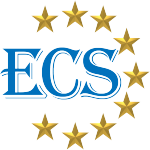
 University of Lorraine
University of Lorraine
Specialization: Computer Science
ECS Web Page at Metz/Nancy (in French)
History and Location
The Lorraine region was already an independent duchy in the Northeast of France when it created its first university in 1572. Throughout History, the region was divided several times into a “French” part and a “German” part, before being reunited and definitely included in France at the beginning of the 20th century. Because of the complex and rich history, two large cities developed: Metz in the North and Nancy in the South.
In Nancy, three universities were founded in the 20th century. In Metz, the first university appeared in 1970 which integrates since 1978 ISFATES, pioneering a large set of integrated French-German curricula through a close partnership with Hochschule für Technik und Wirtschaft des Saarlandes from Germany. On January 1st, 2012, these four universities merged into one, forming the University of Lorraine. The new university has over 50 000 students, close to 6 800 staff members, among which 3 700 teachers and researchers, and many buildings and campuses distributed in the entire region.
1h30 way from Paris by TGV (high-speed train) and at the heart of the Greater Region (Belgium, Luxembourg, Germany, France), the Lorraine region provides a pleasant setting along with a very rich cultural life.
In 2013, according to the French newspaper Le Figaro-étudiant, Nancy was rated by students to be the best city to study in France.
Aims
The courses aim to set strong backgrounds for Computer Science specialities as computer security, business intelligence, human-computer interfaces and software engineering.
Synopsis
The courses can be followed by the ECS students in Metz. They begin in September.
Overview of the third year
Semester 5 (30 ECTS)
- Formal Languages: 3 ECTS
- Systems: Processes, Synchronization, Communication: 3 ECTS
- Database Design and Management: 3 ECTS
- Networking: Upper Layers: 3 ECTS
- Object-Oriented Design: 3 ECTS
- Web Application Design: 3 ECTS
- Languages and Internationalization: 3 ECTS
- Statistics for Computer Science: 3 ECTS
- Elective Modules (Data Analysis, Supervised AI, etc.): 6 ECTS
Semester 6 (30 ECTS)
- Mobile Application Development: 3 ECTS
- Introduction to Cybersecurity: 3 ECTS
- Algorithmics and Dynamic Programming: 3 ECTS
- Functional Programming: 3 ECTS
- Optimization: 3 ECTS
- Compilation: 3 ECTS
- Professionalization (Intro to Software Engineering OR Industrial Placement (8 weeks) ): 3 ECTS
- Graph Modelling and Optimization: 3 ECTS
- Elective Modules Options (Database Management, Unsupervised AI, etc.): 6 ECTS
Detailed information about the courses (in French)
The ECS students who already followed some of the above courses in their home institutions can replace them with courses from the ISFATES Institute 3rd year (only for the students in Metz), courses from the 2nd year, or Master 1st year. No more that 2/3 of the courses should be replaced by courses from Master 1st year.
List of some courses followed by the local students during the ISFATES 3rd year:
- Advanced databases and Design: 4 ECTS
- Advanced Java Programming: 4 ECTS
- Project Management: 4 ECTS
- Human-Computer Interaction and Web: 4 ECTS
List of some courses followed by the local students during the 2nd year (first semester of the bachelor):
- Algorithmics and Programming: 6 ECTS
- Advanced Programming: 3 ECTS
- Relational Databases and Languages: 3 ECTS
- Computer Architectures and Networks: 6 ECTS
List of some courses followed by the local students during the Master 1st year (choice of 3 courses maximum):
- Software Analysis and Design: 6 ECTS
- Computer Networks: 6 ECTS
- Logic and Computational Models: 6 ECTS
- Algorithmics and Complexity: 6 ECTS
Contacts:
Sorin STRATULAT: sorin.stratulat@univ-lorraine.fr

